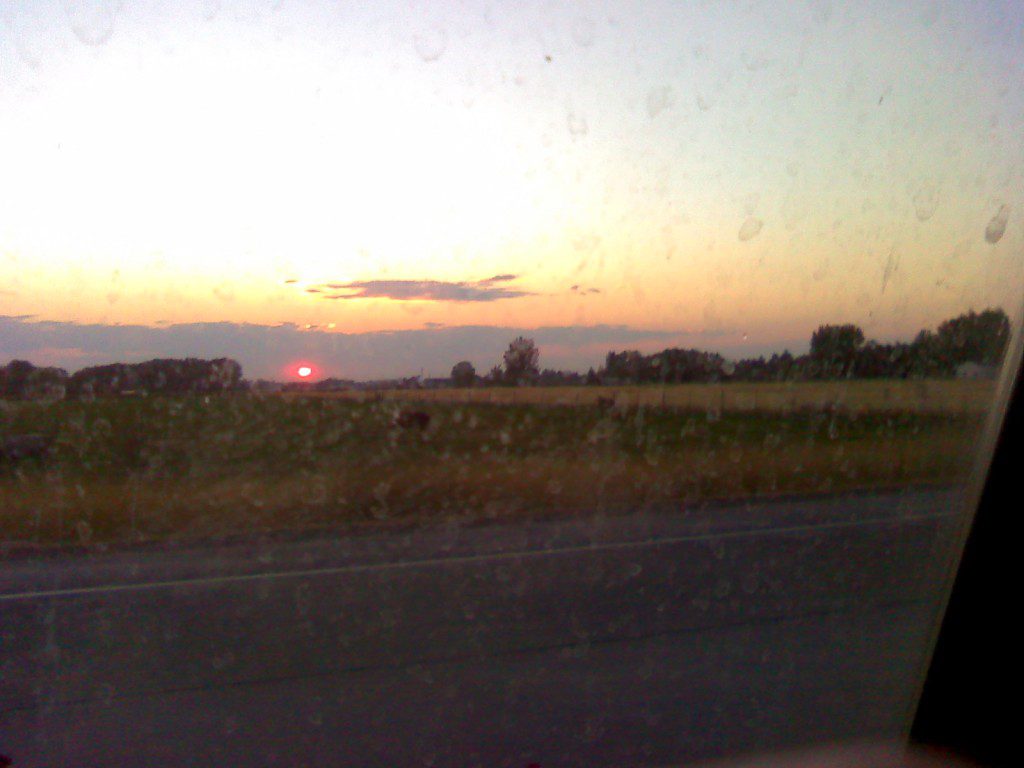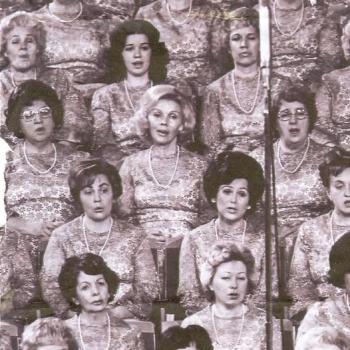Part 3 of 4
Part 1 is here. Part 2 is here.
David walked towards the nearest armchair, glancing around. There were paintings on the walls—of big rocks and many hues.
“But you did see the lights back then,” David said.
“Of course. I waited thirty years before I wrote it down, though. Perhaps I left out a detail or two. And perhaps I missed a few things. Well, I didn’t see the rainbow, did I. Apparently, I did miss at least one thing. . .”
David sat in the softest chair he had ever experienced. “I don’t want to miss anything.” He sank into cushions so deep he was sure his knees were nearly up to his chin. “Why are you inside your house? Don’t you want to see the big rocks again?” he asked.
“Oh, I may venture outside. I am very old, you know. It’s not easy.”
“You’re sure you saw them back then?”
“Why would you doubt it? You’ve already seen things today which you never imagined.”
David squirmed—which was hard to do in that chair. “I just—I don’t want to believe in something and then get disappointed.”
“Ah, so that’s how it is. Well, you will always find disappointment. See if you can be surprised by beauty instead.” He stroked his long beard. “Would you care for some tea? Cocoa? You must be cold. You’re awfully wet, you know.”
“I don’t need anything to drink,” said David. “I want to be outside so I can see things.”
“Of course. Yes, that’s a good idea. There would probably be more books, but most of the people were frightened by the sounds—oh, I should give you the right word. Thunder. Yes, I should have mentioned that. The thunder frightened people. They weren’t like you. They were scared to go outside. And, as you might imagine, they didn’t want to get wet. So they missed it. And then they refused to believe in it.”
“You didn’t talk about the getting wet part in your book either.”
The old man didn’t answer, but winked, and then helped him out of the soft cushions, walked him to the door, and bade him goodbye, saying, “The water from the clouds is called rain.”
“You’re not coming with me?”
“These old bones creak with every step, and I’m afraid my joints ache when it’s wet. I’ll step outside later. It’s not so urgent for me. I have seen it, after all. On the Day of No Clouds a century ago, and every evening when my wife and I read about it and remembered together. The truth is, I’ve had many days with no clouds.” He winked and gave another smile. “Good bye, David.” And he shut the door.
Very soon, David noticed a new kind of light around him, streaming through the clouds in dazzling fans. Oh yes, something was happening. The clouds were criss-crossing each other and pulling back. Something certainly was happening.
Then he saw it—a shard of unclouded sky. But it wasn’t pink, as the old man’s book had claimed. It was blue. As blue as the professor’s eyes. “He was wrong,” David said, and then remembered the words: “Be surprised by beauty.”
The blue was beautiful. But the old man used that word too much. He described the clouds on David’s birthday and David himself with that word. Beautiful. Surely there was a better one. The blue was…like the old man’s winking eye. Strange and unexpected. And, in this case, getting bigger. The blue was expanding as the clouds lifted. Now there was an endless belt of blue under the rising clouds.
He squinted. Where were the huge rocks with the many-colored trees? He couldn’t see them. The blue widened and then–there, there in the distance! Oh, magnificent rocks! Bigger even than what he had imagined. But the colors? No, none of the colors the old man had described was there.
David started running towards the rock—the mountain, it was called. He remembered that. Maybe if he got close, he would see the colors. He focused only on that possibility, though he was quickly aware that he was getting hot. He looked up, panting.
The sky was a lighter blue now, and the clouds were almost all gone. Above him was a sight he had never read of in any book: a globe far brighter than anything he had seen dancing in the clouds. He could feel its heat, but could not look at the globe itself. Surely looking directly at it would burn his eyes. Why had the old man not mentioned this globe?
He shut his eyes and forced himself to run on. He ran until his chest stung and his legs resisted one more step. Something in his left leg hurt. He limped as he continued, but he didn’t stop, not once.
Within a few hours, he had reached the mountain. It was ever more enormous than he had thought, and its top rocks were covered in something like the clouds, but different. The covering was white, and it glistened. But where were the colors? Everything about the trees and their leaves was drab, brown, gray, slate . There were no golds, no rusts, no reds. The dry, dangling leaves looked like desiccated moths. He touched one. It fell and swirled to the ground, and he saw that the ground was littered with them. The old man had made up the colors. Maybe in all those romantic moments with his wife, the two of them had added dreamy—but false—details to the reality. Maybe the colors in the man’s book and in the painting on his wall were more love than truth. Or maybe he wanted his book to sell more copies, and so he had lied.
The globe was getting lower in the sky as David hiked the mountain. There were no trails, and he slipped many times, skinning his knees and elbows. It didn’t matter. He would get to the top of the mountain and tell the complete truth. He would omit nothing.
He climbed, scraping his arms on the pointed green trees whose branches jabbed and stabbed him. That didn’t matter. It would be another detail of his true account. He climbed, finally removing his shirt in the heat.
There were no unusual colors, no matter how high he hiked. David sat on a slab of rock and panted.
The sky was changing. He looked towards the globe and found that it was no longer blinding. However, he could also see that the clouds were beginning to return. The globe was sinking into a sheet of clouds, illuminating them. Surrounding the globe were new colors. David took in a sharp breath as he realized that they—and most of the sky—were exactly the color of strawberry meat, just as the old man had described.













